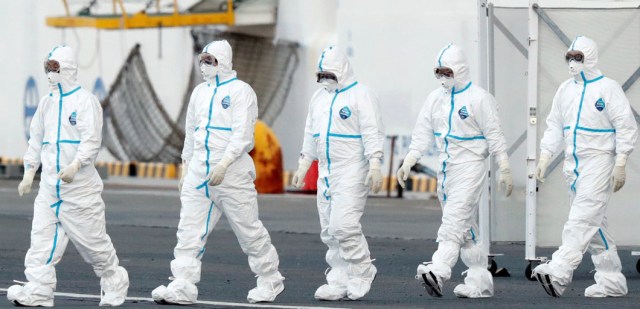
I wish it were not the case but it is: I have an intimate knowledge of the US healthcare system. Back in 2008, on a sun-dappled December day in Washington DC, we took my 9-year-old son to the doctor: he’d been losing weight and seemed out of sorts.
Everything changed for him that day and for us as a family. He was diagnosed with type one diabetes; incurable, dangerous, and in those days, deeply unpleasant for children who had to prick their fingers and inject themselves with insulin every few hours.
How did the US system perform?
Magnificently. No waiting. No fuss. No rationing of anything. A hospital stay. Kit and caboodle to help cope at home. Appointments with sales people during which they would compete to try to get us to choose their insulin pump over the other guys’. Everything paid for by our insurers.
We worried about plenty of things, but never the availability of anything that any human being had ever invented to cope with this condition.
This is why Covid-19 presents such a foundational threat to the US healthcare system. That’s why it could change the politics of healthcare in a way that will leave both Donald Trump and Joe Biden (let us assume it is him) scrambling for new thinking by the time of the presidential election.
Bluntly: the unfairness does not matter. The fact that plenty of Americans with type one diabetes struggle to get even basic care and the insulin to keep them alive has motivated the Bernie Sanders Left to call for a UK–style guarantee of government funded care — but frankly they have made little political headway. The tipping point, the moment of truth, is not the public health emergency caused by a weak primary care system, or the inability of millions of uninsured people to get access to a doctor at all.
Americans are used to both.
The reason why this moment feels so deeply transformational is that the crisis about to hit the USA is going to touch a segment of the population that has benefited from an unlimited health-care candy store. And is about to find the candy gone.
According to Array Advisors, a healthcare monitoring consultancy, most states will run out of available intensive care unit hospital beds by mid-April. Hugely populous and hugely demanding New York state is expected to hit its capacity by April 5. Let us hope it does not happen. But it seems likely.
In those circumstances you can have insurance. The best. You can be willing to pay from your own pocket. Whatever it takes. But suddenly, for the first time in living memory, the US healthcare system will not deliver.
That age old American question, why should I pay for someone else’s healthcare? will be answered: you should pay because you too are affected. You should pay to protect yourself.
And you should understand that a system that promises to deliver everything all the time might be due for a fundamental review.
The Rise and Fall of American Growth is one of those books that sits in the category of ‘much more interesting than they sound’. Robert Gordon’s doorstop-sized tome, published in 2016, is humming with stories of American enterprise, including in the field of health.
But the story since around 1970 is little short of dismal. The USA has saddled itself with easily the most expensive medical system in the developed world, alongside some of the worst levels of life expectancy. And it has done so quite recently. As Gordon writes: “By 2013 the share of medical spending in GDP, which was only 4 percent between 1930 and 1960, had reached 18 percent”. It is expected to get to 20 percent in a few years time.
To look at it another way: Robert Gordon says America spends 55% more per person on health than Canada. Its life expectancy is 2.5% shorter.
My son’s diabetes kit was provided without any thought about the cost. The insurer passed it on in premiums to my employer, the BBC, and they in turn will have had a tax break for providing the cover. Somewhere in this great gloopy mess of hidden subsidy and administrative costs, Sam’s insulin pump was lost. Nobody knows who actually paid and nobody cares. The incentive is to over-serve the wealthy and spend hugely on unproductive services and over-paid practitioners.
Until now. If well-insured people in New York state call for help in the next month and do not get it, the fever will break. Most elderly Americans have been ditched by their private insurers but they get to join a government-backed system called Medicare: the better-off will pay extra into this scheme and get more out of it: including the best care for Covid-19. Everyone with decent insurance will expect the treatment that they have been used to all their lives.
Again: let us hope that the system copes. It still might. But if it buckles, a failure of this scale for the well-insured demographic is a unique event in modern American healthcare.
And it comes, of course, just months before an election in which a populist president is looking for ideas. And a moderate challenger is looking for traction. To many Americans, neither one of these men fit the bill as serious thinkers about health or much else. But around them, among those advising them, there is a big prize to be won. If America’s system breaks in the coming months, along what lines should it be rebuilt?
Robert Gordon calls American hospitals “gleaming palaces of science and waste”. I take no joy in wondering if the palace walls are about to fall in.










Join the discussion
Join like minded readers that support our journalism by becoming a paid subscriber
To join the discussion in the comments, become a paid subscriber.
Join like minded readers that support our journalism, read unlimited articles and enjoy other subscriber-only benefits.
Subscribe